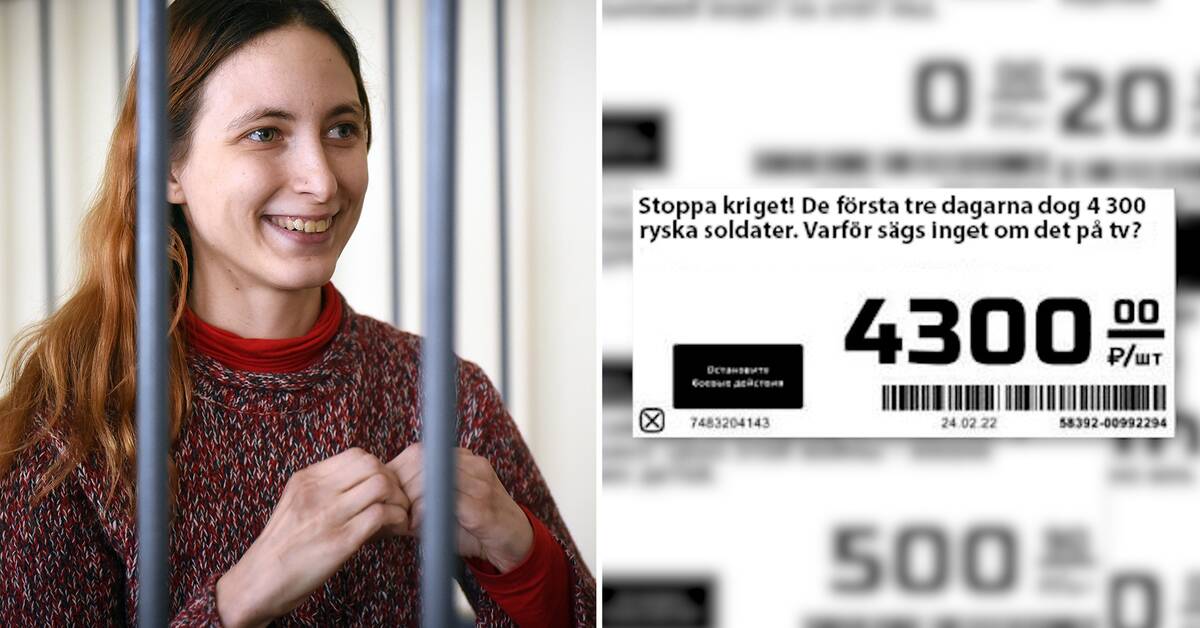Sasja Skotjilenko has been in custody since April, after writing on notes in a grocery store, among other things, that the Russian army blew up a school in Mariupol and that her Ukrainian friends have to hide from Russian bombs in the subway.
The action was noticed by a 72-year-old pensioner who reported her to the police.
Now Sasja Skotjilenko risks ten years in prison.
The crime she is accused of is spreading "fake news" about the Russian army - a crime that, under a new law passed in Russia in March 2022, could carry a prison sentence of up to 15 years.
Nine people have been sentenced to prison since the law came into force.
The longest sentence has been given to the opposition politician Ilja Jasjin.
He was sentenced to eight years.
- You can also be fined for the same crime, there are such cases.
But those people admitted that the information they had spread was false.
Sasja will not admit it, she stands by what she wrote on the notes, says her defense lawyer Jana Nepovinnova.
Different laws to pursue
Since Russia's invasion of Ukraine, 5,600 people have been fined for "discrediting" the Russian army.
Several of them have, for example, demonstrated with placards with the text "No to war" or spoken out against the war on social media, says Marija Kuznetsova, spokesperson for the human rights organization OVD Info.
A total of 424 people in Russia are awaiting trial after taking a stand against the war in Ukraine in some way, according to OVD Info.
Among the defendants are 105 activists and politicians, 32 journalists and 9 military personnel.
About a hundred of them are in custody.
Russian authorities are also using the usual laws to get at those who show dissatisfaction with the war.
- If you have, for example, destroyed a statue with a Z symbol, you will be charged with vandalism.
Those who demonstrate are often charged with "violent resistance".
Then you are punished with arrest - being locked in a cell for up to 30 days.
It is also common for officials to force employers to fire those who have taken a stand against the war, says Marija Kuznetsova.

